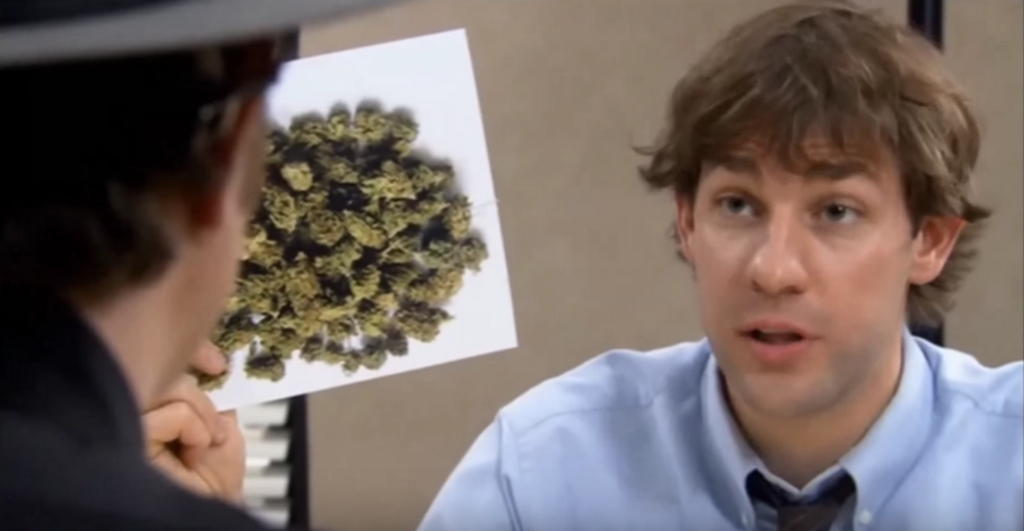I Fired Someone for Failing a Workplace Drug Test. Is There a Better System?

Attitudes towards drugs are rapidly evolving, and things have changed in ways almost unimaginable even a decade ago. Pot is totally legal in four states and medicinally-available in 19 others. But the cultural shift is even more pronounced than the legal one; teen weed comedies have made room for series like “High Maintenance,” one of the most earnest and mature shows on TV. Maureen Dowd wrote about her charming, edible-induced freakout in the Times. What a time to be alive!
Not for everyone. Depending on your job and your socioeconomic status, it might feel like the future — or it might still feel like Nancy Reagan is watching your every move. Running my family’s business brought these differences into stark relief.
When I took over my father’s bus company, I also became the administrator of our drug policy. Our insurance required all of our bus drivers to be drug tested when they were hired, and again randomly throughout the year. They could also be tested if I had a “reasonable suspicion” that they were intoxicated, whatever that meant.
One day, a doctor in the Bronx called to tell me that one of my favorite drivers — who had been with us for years — tested positive for marijuana during a random screening. When I spoke to him, he admitted that a few weekends earlier he’d smoked at a concert with some friends. The conversation was awkward — a 29-year-old white guy interrogating an older black man about drug use. It honestly felt like none of my business, but here we were. I dusted off our drug policy and saw two options:
- Immediate termination, or
- Temporary suspension. The employee could return to work if he completed a “substance abuse treatment program” and agreed to more-frequent drug tests afterward.
Questions swirled in my head. Wasn’t this policy a little harsh? Did it really matter what this guy did to relax on the weekends, as long as he wasn’t stoned on the job? What kind of “treatment program” could he possibly need? Why did I suddenly feel like a narc in an ‘80s sitcom?
Still, I needed to follow the policy. Other employees could have sued if they felt I wasn’t applying the rules fairly. I could also get into big trouble if an accident did happen and the insurance company found out that I had been looking the other way.
Eventually we made a deal, the kind my dad probably would have made. I would suspend him without pay and help him find a “treatment program” in his neighborhood. I’d even pay him back the cost of the program when he returned (they’re pretty expensive). We talked about how he’d need to “stay clean” (I used those exact words and it felt ridiculous) and that he would need to take extra drug tests when he came back. He said he understood.
The outcome was positive, but I was still troubled by the whole thing. How could I be cheering along for changes in society that I think are generally positive, while still enforcing a policy that felt so outdated and draconian?
At a time when many of us are focused on gross disparities in the criminal justice system, there’s an important analog in the working world. I’ve never had to take a workplace drug test, and many of my friends — white-collar professionals, or creatives — haven’t either. A study by the Yale School of Medicine reports that blue-collar and minority employees are far more likely to be subject to workplace drug testing than other workers.
Many of us probably feel better knowing that some jobs have strict drug policies — airline pilots, construction workers, and, yes, bus drivers. And many of us who don’t have those kinds of jobs like that might feel demeaned and insulted if we were asked to pee in a cup by our boss. It feels important to recognize that, whether you are encouraged or concerned by recent changes in laws and attitudes, things aren’t changing for everyone — at least not at the same pace.

The bus driver completed the treatment program and returned to work. But about a year later, he failed another random drug test. This time, my hands were tied, and I had to let him go.
It was the only time I’d ever had to fire someone, and it was one of the hardest things I’ve ever done. He was a long-time employee, with a young family. It was devastating for both of us.
I told myself I wasn’t wrong. We had a deal and he broke it. I felt like a fool, a hypocrite, and a tyrant. I also knew I had no choice.
I am mostly confident I did the right thing. But I also wonder how or if there will ever be a way to reconcile rapidly-changing social and political mores with the realities of the service economy. Should there be a more modern alternative to a strict “positive or negative” workplace drug policy?
I’d like to hear your thoughts and experiences. Have you ever taken a drug test at work? Would you take a job that required one?
Matt Baer lives in New York and no longer owns a bus company. Follow him on Twitter: @ThisIsMattBaer
Support The Billfold
The Billfold continues to exist thanks to support from our readers. Help us continue to do our work by making a monthly pledge on Patreon or a one-time-only contribution through PayPal.
Comments